
Recently, an AI night scene shooting video from Google has gone viral!
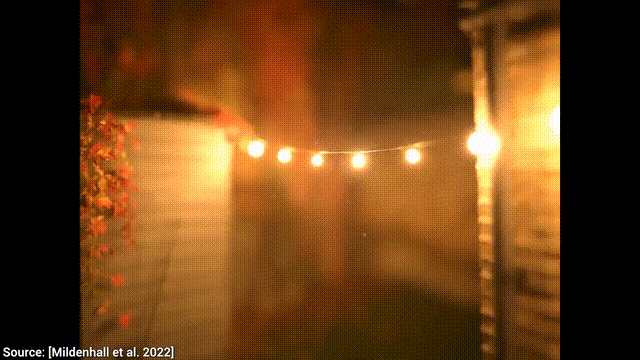
The technology in the video is called RawNeRF, which as the name suggests is a new variant of NeRF.
NeRF is a fully connected neural network that uses 2D image information as training data to restore 3D scenes.
RawNeRF has many improvements compared to the previous NeRF. Not only does it perfectly reduce noise, but it also changes the camera perspective and adjusts focus, exposure and tone mapping. This paper by Google was published in November 2021 and included in CVPR 2022.

## Project address: https://bmild.github.io/rawnerf/
在黑夜的RawNeRFPreviously, NeRF used tone-mapped low dynamic range LDR images as input.
Google's RawNeRF instead trains directly on linear raw images, which can retain the full dynamic range of the scene.
In the field of composite views, dealing with dark photos has always been a problem.
Because in this case there is minimal detail in the image. And these images make it difficult to stitch new views together.
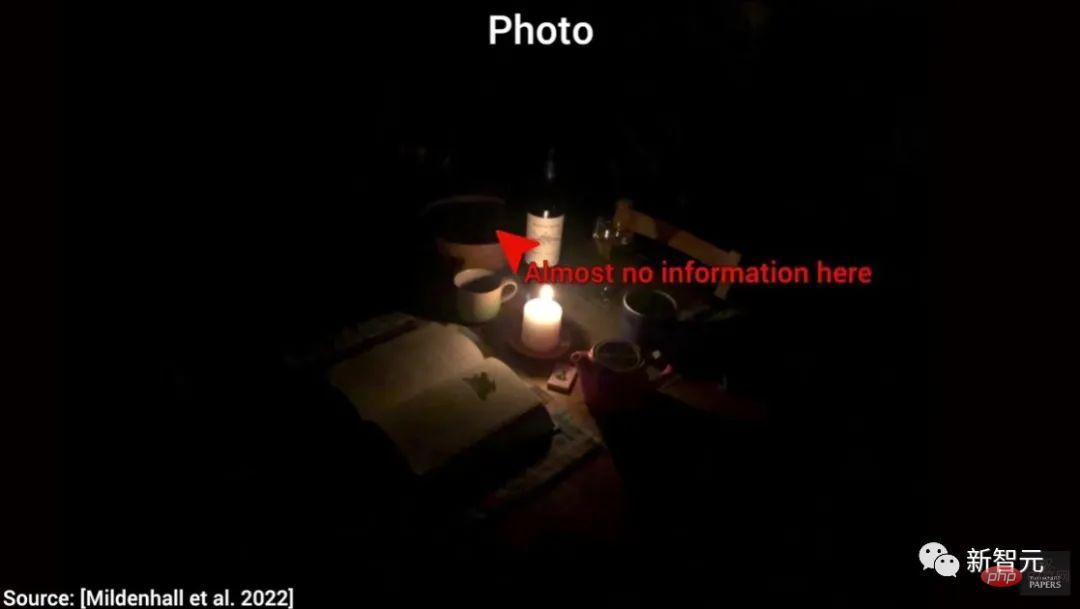
Fortunately, we have a new solution - using the data of the original sensor (RAW sensor data).
It's a picture like this, so we have more details.
However, there is still a problem: there is too much noise.
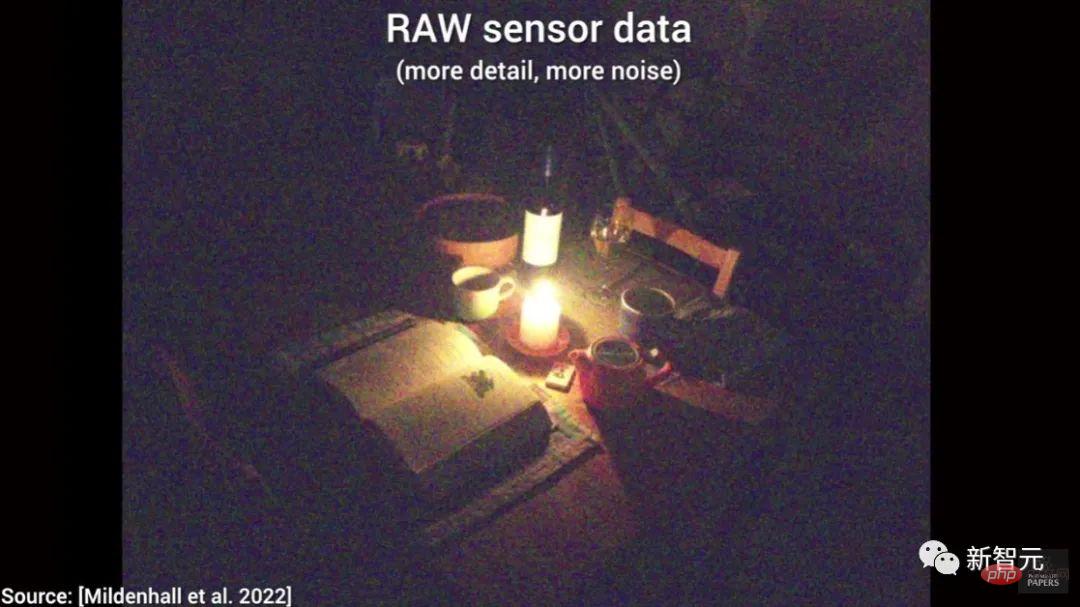
So we have to make a choice: less detail and less noise, or more detail and more noise .
The good news is: we can use image noise reduction technology.
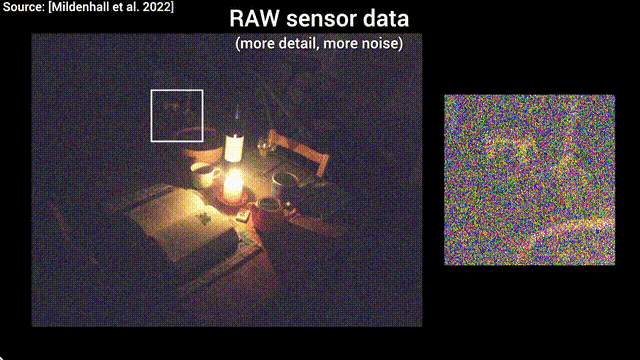
It can be seen that the image effect after noise reduction is good, but when it comes to composite views, this quality is still not enough.
However, image denoising technology provides us with an idea: since we can denoise a single image, we can also denoise a group of images.
Let’s take a look at the effect of RawNeRF.
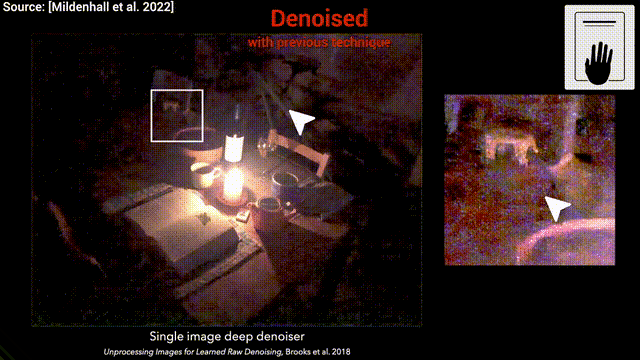
And, it has more amazing features: tone mapping the underlying data to extract more details from dark images .
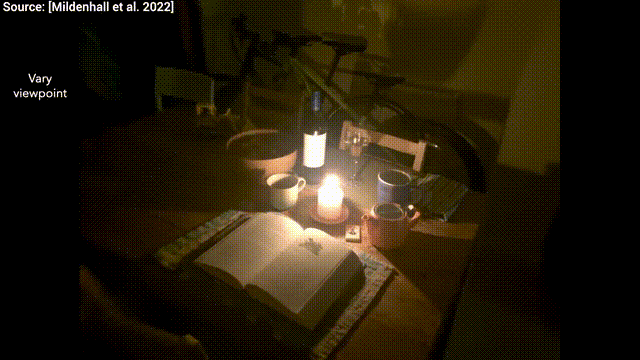
For example, changing the focus of the image creates a great depth of field effect.
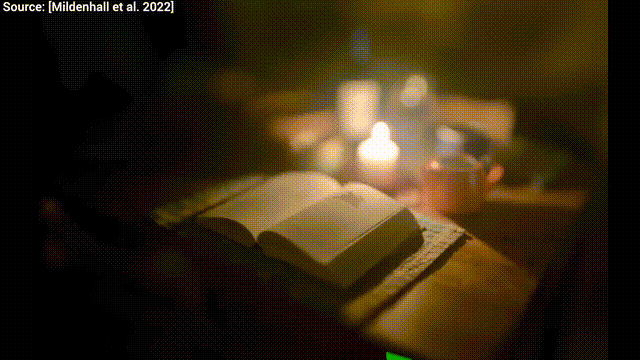
What’s even more amazing is that this is still real-time.
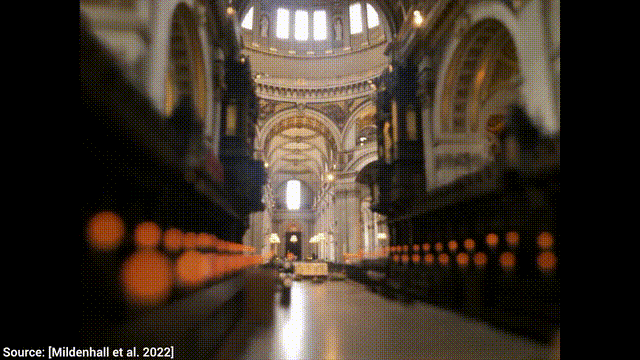
In addition, the exposure of the image will also change accordingly as the focus changes!
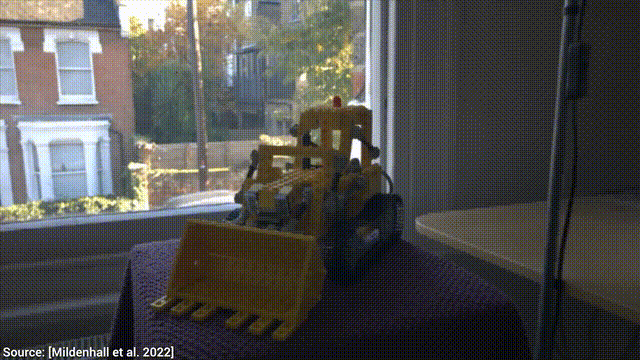
Next, let us take a look at five classic application scenarios of RawNeRF.
1. Image clarity
Look at this image, you Can you see the information on the street signs?

It can be seen that after RawNeRF processing, the information on the road signs is much clearer.
In the following animation, we can clearly see the difference in image synthesis between original NeRF technology and RawNeRF.

In fact, the so-called NeRF is not that old technology, it has only been 2 years...
It can be seen that RawNeRF performs very well in processing highlights. We can even see the highlight changes around the license plate in the lower right corner.
2. Specular Highlight
Specular highlight is a very difficult object to capture because it is difficult to capture when moving the camera. , they will change a lot, and the relative distance between the photos will be relatively far. These factors are huge challenges for learning algorithms.
As you can see in the picture below, the specular highlight generated by RawNeRF can be said to be quite restored.

3. Thin structure
Even in well-lit situations , the previous technology did not display the fence well.
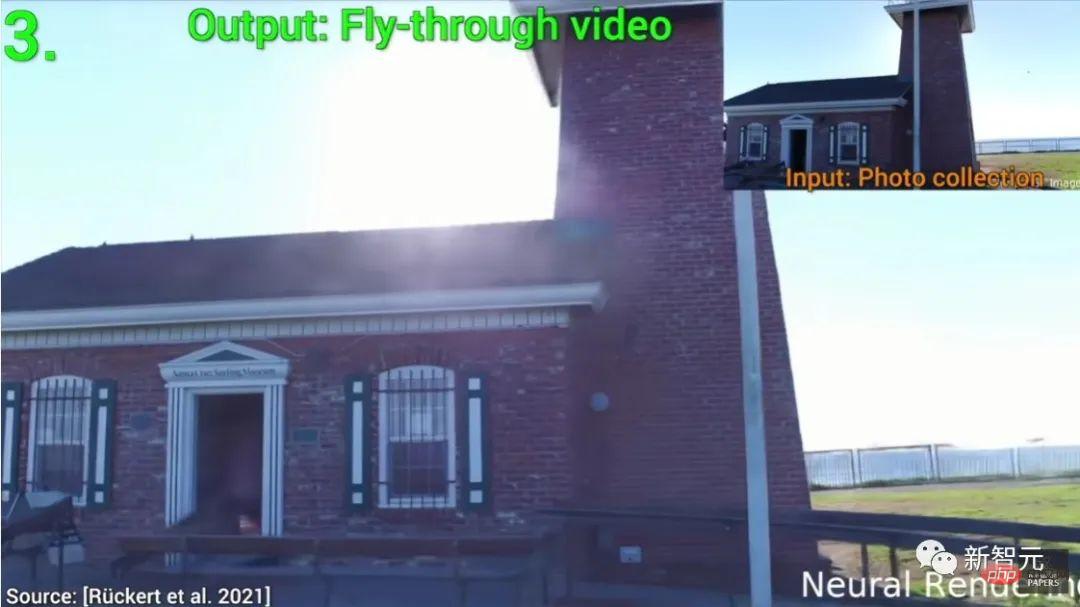
And RawNeRF can handle night photos with a bunch of fences, and it can hold it properly.
The effect is still very good even where the fence overlaps the license plate.
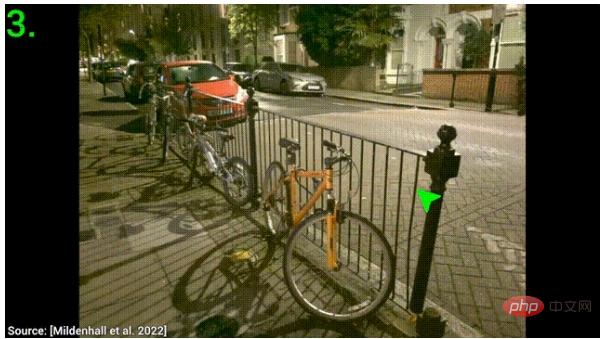
4. Mirror reflection
The reflection on the road is a A more challenging specular highlight. As you can see, RawNeRF also handles it very naturally and realistically.
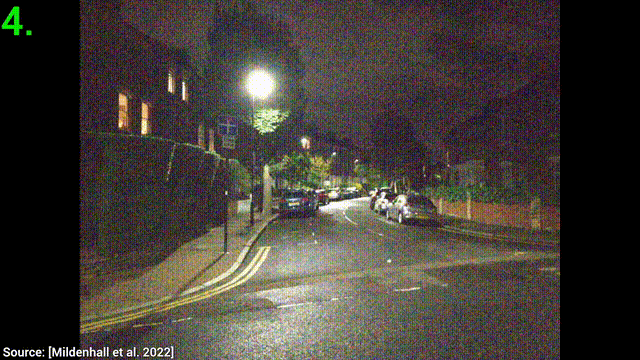
5. Change focus and adjust exposure
In this scene , let's try changing the perspective, constantly changing the focus, and adjusting the exposure at the same time.
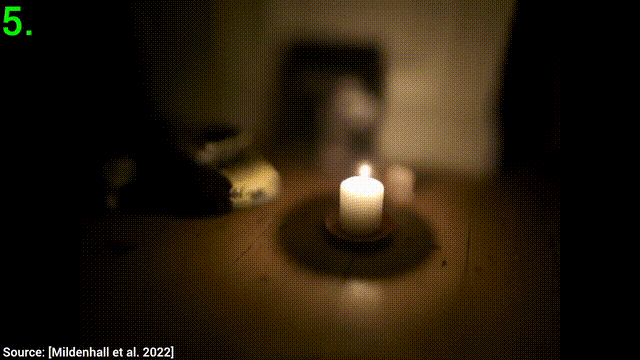
In the past, to complete these tasks, we needed a collection of anywhere from 25 to 200 photos.
Now, we only need a few seconds to complete the shooting.
Of course, RawNeRF is not perfect now. We can see that there are still some differences between the RawNeRF image on the left and the real photo on the right.
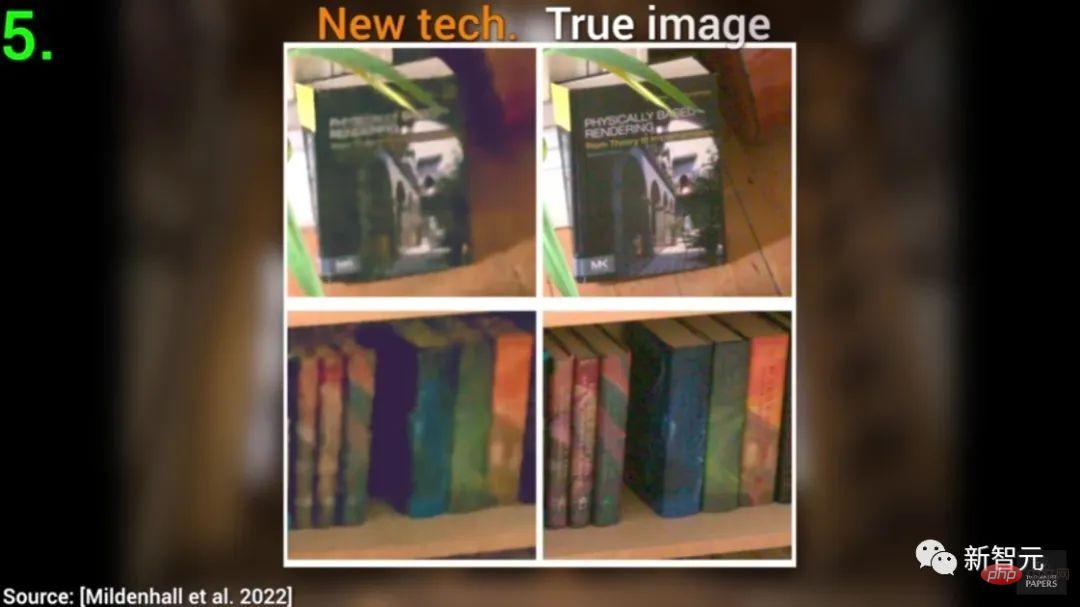
However, RAWnerf has made considerable progress from a set of original images full of noise to the current effect. You know, the technology two years ago was completely unable to do this.
To briefly review, the NeRF training pipeline receives LDR images processed by the camera, and subsequent scene reconstruction and view rendering are based on is the LDR color space. Therefore, the output of NeRF has actually been post-processed, and it is impossible to significantly modify and edit it.
In contrast, RawNeRF is trained directly on linear raw HDR input data. The resulting rendering can be edited like any original photo, changing focus and exposure, etc.
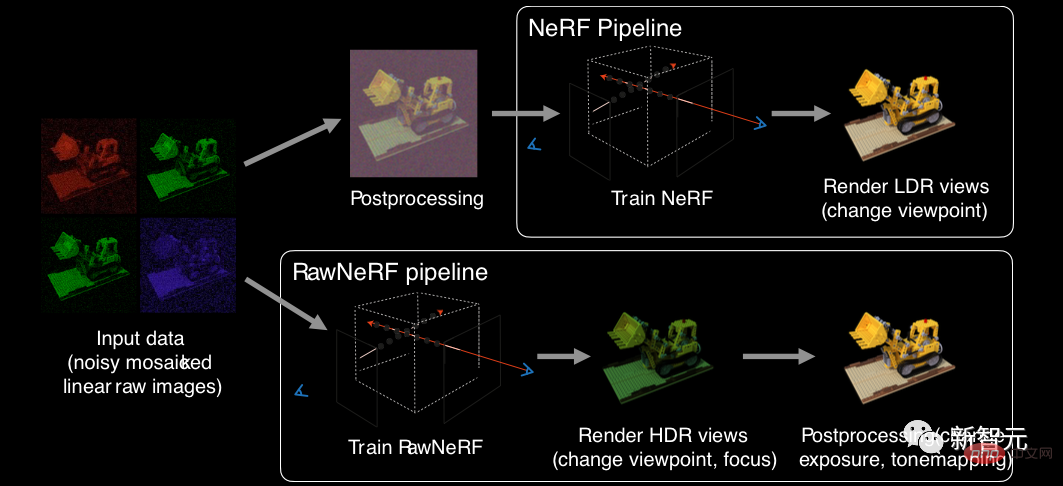
The main benefits brought by this are two points: HDR view synthesis and noise reduction processing.
In scenes with extreme changes in brightness, a fixed shutter speed is not enough to capture the full dynamic range. The RawNeRF model can optimize both short and long exposures simultaneously to restore the full dynamic range.
For example, the large light ratio scene in (b) requires a more complex local tone mapping algorithm (such as HDR post-processing) to preserve the details of the dark parts and the outdoor scenes at the same time. highlight.
In addition, RawNeRF can also render synthetic defocus effects with correctly saturated "blurred" highlights using linear color.
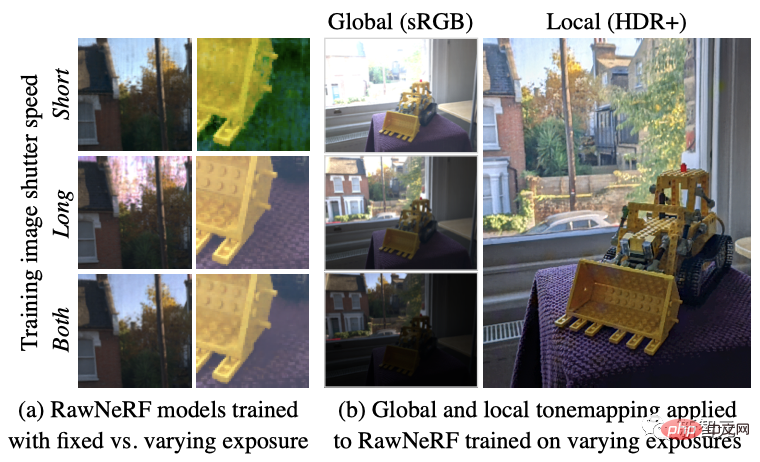
In terms of image noise processing, the author further trained RawNeRF on completely unprocessed HDR linear original images to make it It becomes a "noiser" that can process dozens or even hundreds of input images.
This kind of robustness means that RawNeRF can excellently complete the task of reconstructing scenes in the dark.
For example, in (a) this night scene illuminated by only one candle, RawNeRF can extract details from the noisy raw data that would otherwise be destroyed by post-processing (b, c) .
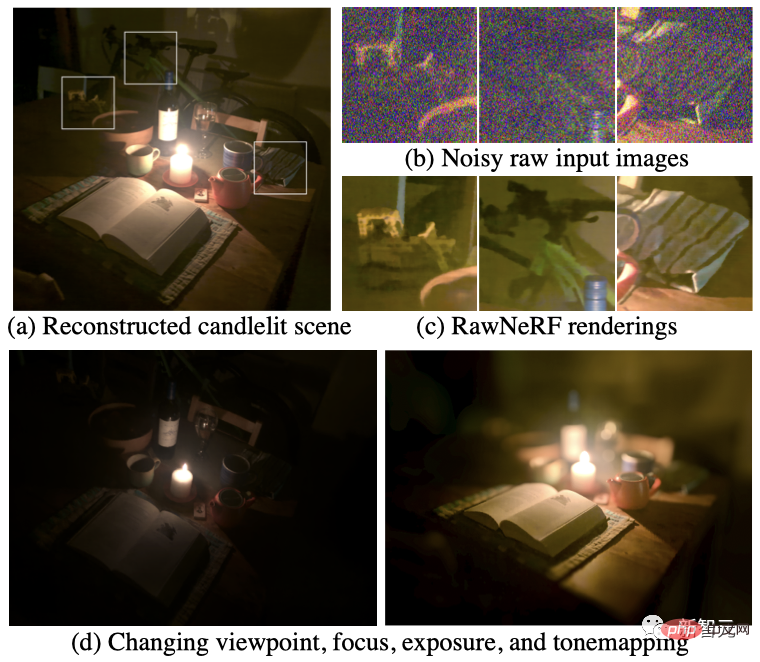
Author introduction
The first author of the paper, Ben Mildenhall, is a researcher at Google Research Scientists working on problems in computer vision and graphics.
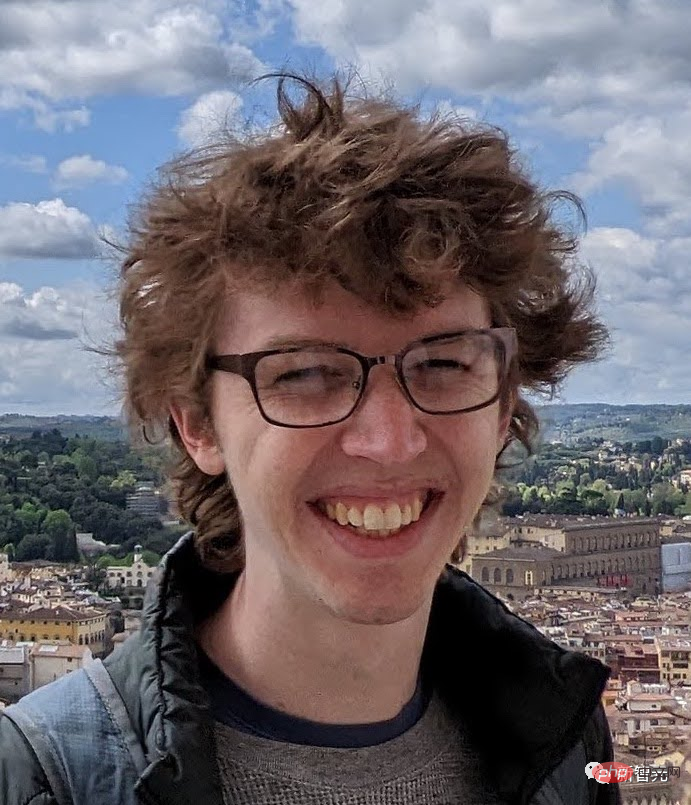
He received a bachelor's degree in computer science and mathematics from Stanford University in 2015, and a PhD in computer science from the University of California, Berkeley in 2020 .
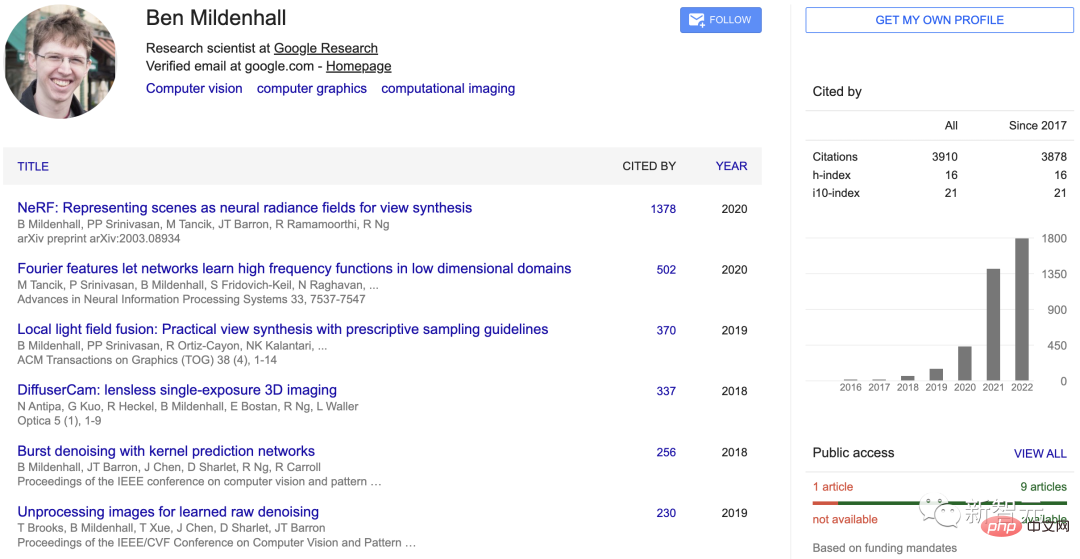
The just-concluded CVPR 2022 can be said to be Ben’s highlight moment.
5 out of the 7 accepted papers won Oral, and one won the honorable mention for the best student paper.
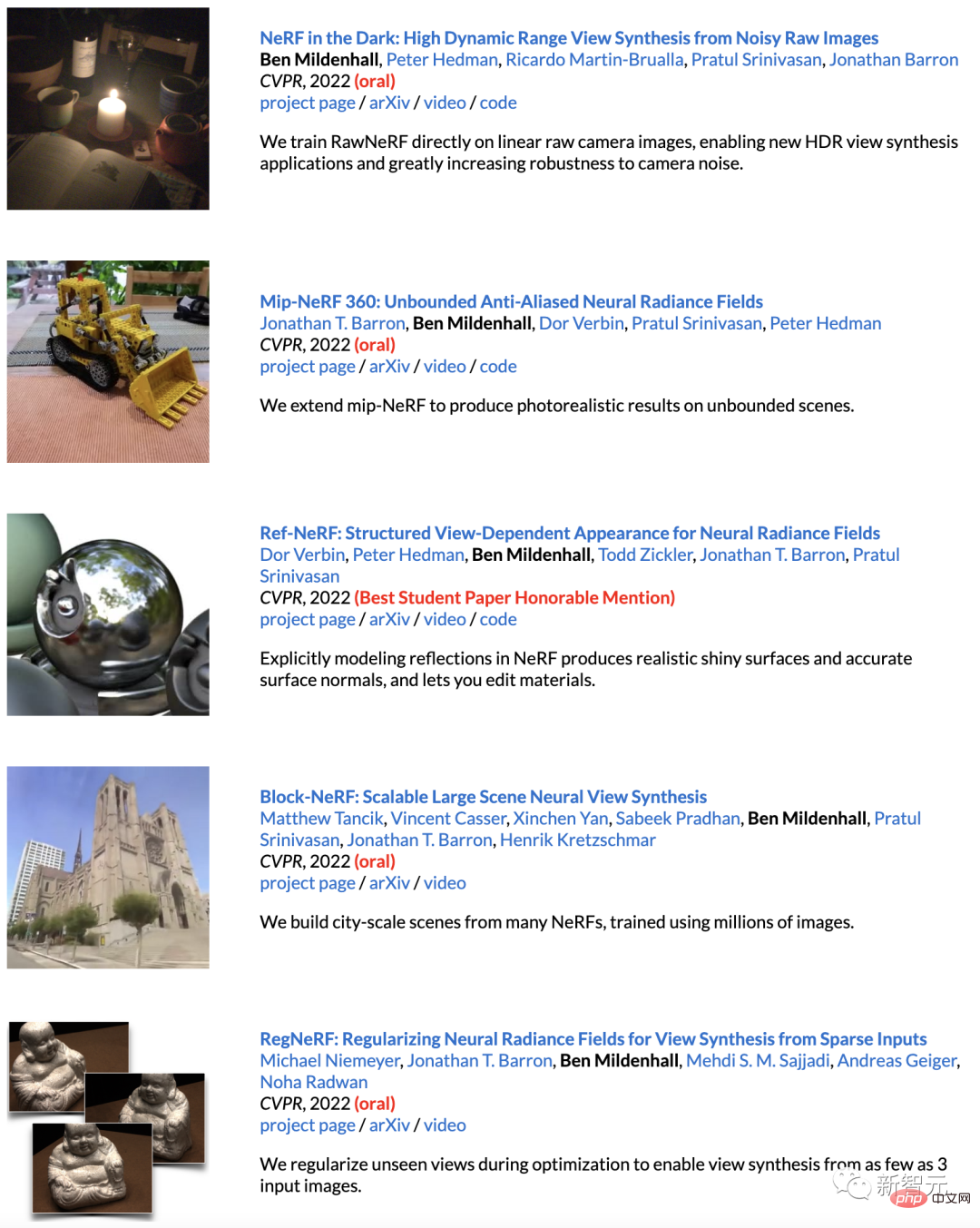
As soon as the video came out, it immediately amazed all netizens. Let's all have some fun together.
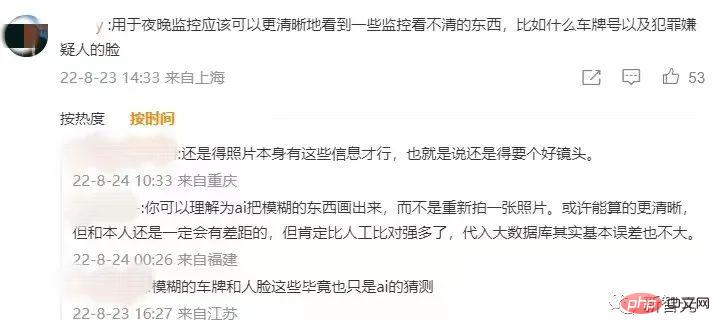





Looking at the speed of technological advancement, it won’t be long before you no longer have to worry about taking photos at night. Got~
The above is the detailed content of Google's incredible 'night vision” camera suddenly became popular! Perfect noise reduction and 3D perspective synthesis. For more information, please follow other related articles on the PHP Chinese website!




